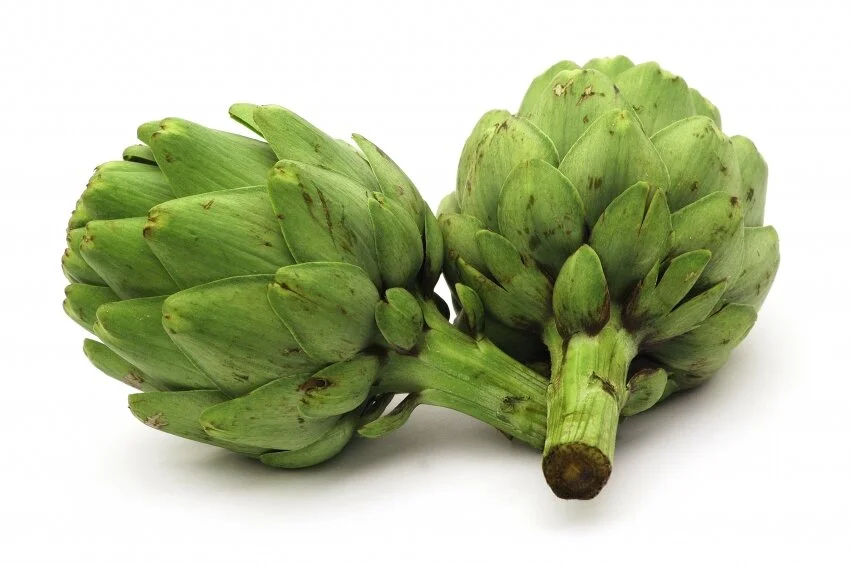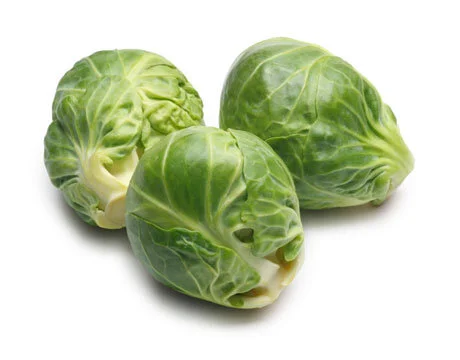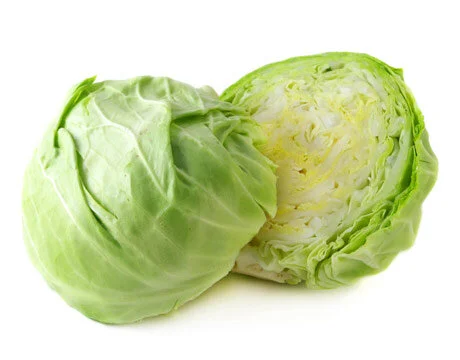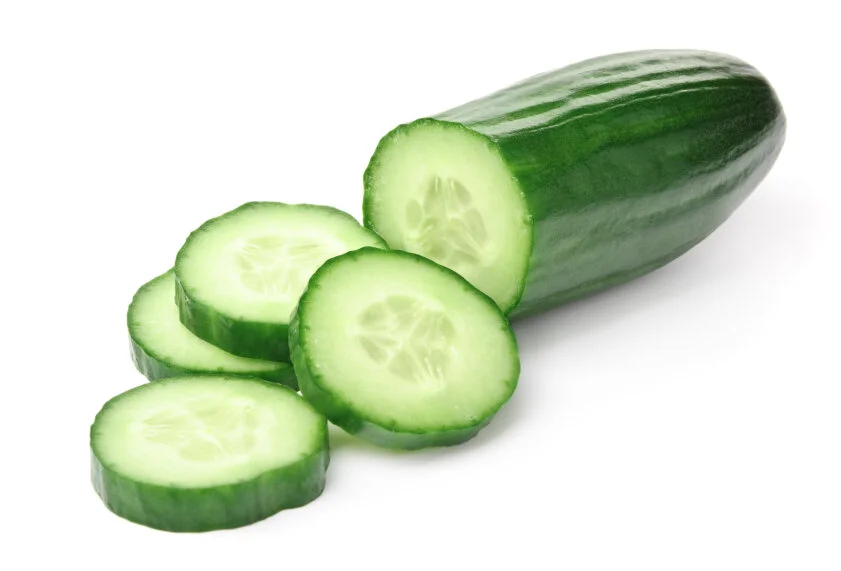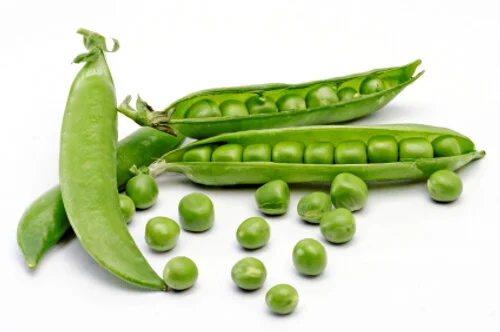VEGETABLES
Artichokes
Artichokes as we know them are actually the buds of a purple flower that can grow more than 3 feet tall. Because of their tough exterior, artichokes take some careful preparation, but your efforts will reap nutritional rewards – artichokes are a good source of folate, dietary fiber, and vitamins C and K. Artichokes are also packed with antioxidants; in fact, they're number 7 on the USDA's top 20 antioxidant-rich foods list. Studies have shown that artichokes can help regulate gallbladder and liver functions, as well as aid in digestion and lower LDL (bad) cholesterol.
Nutritionals
Vitamin C
Folate
Fiber
Vitamin K
Antioxidants
Health Benefits
Linked to helping liver function and gallbladder function
Great for digestive health
Can help lower cholesterol
Boosts the immune system
Asparagus
Asparagus is a popular vegetable known for its unique and savory flavor. It's one of the best natural sources of folate; adequate folate intake is extremely important during periods of rapid growth such as pregnancy, infancy and adolescence. Asparagus also contains chromium, a trace mineral that enhances insulin's ability to transport glucose from the bloodstream into your cells, making it a great food for diabetics. In addition, asparagus helps detoxify the body and can help increase blood circulation.
Nutritionals
Folate
Vitamin E
Vitamin K
Vitamin C
Vitamin A
Fiber
Chromium
Glutathione
Health Benefits
Supports healthy digestion
Boosts the immune system
Anti-carcinogenic properties
Beets
Have you ever turned "beet red" before? Then you recognize the characteristic hue of, you guessed it, the beet. Beets are rich in Vitamin C, potassium and folate, and has been linked to helping lower blood pressure, maintain healthy bones, and even improve liver, kidney and pancreatic function. Specifically, beets can help cleanse the liver. The powerful phytonutrients that give beets their deep crimson color may help ward off cancer.
Nutritionals
Vitamin C
Fiber
Manganese
Potassium
Folate
Health Benefits
Boosts immune system
Promotes healthy nerve & muscle function
Help lower blood pressure
Anti-carcinogenic properties
Great for digestive health
Bell Peppers
Bell peppers are cousins to chili peppers, but have more sweet than heat. They have a ton of antioxidants and nutritional value, though the red pepper has the the highest nutritional value because it's left on the vine for longer than the other colored varieties. For example, all bell peppers have Vitamin C and beta-carotene, but red bell peppers have higher concentrations of those essential nutrients. The capsaicin in bell peppers can help lower cholesterol, ease inflammation and boost your metabolism. Bell peppers also contain Vitamin B6, which is great for maintaining a healthy nervous system.
Nutritionals
Fiber
Vitamin C
Beta-carotene
Vitamin K
Vitamin A
Vitamin E
Vitamin B6
Lutein
Folic Acid
Health Benefits
Great for skin health
Anti-inflammatory properties
Boosts immune system
Jump-starts the metabolism
Helps lower cholesterol
Supports eye health
Broccoli
These little mini-trees are notorious for being pushed off of kids' dinner plates around the world, but broccoli's reputation as one of the healthiest vegetables still rings true. Broccoli offers several cancer-inhibiting nutrients, such as selenium and DIM (diindolylmethane), that make this vegetable a necessity.
Nutritionals
Vitamin A
Vitamin B6
Vitamin C
Folic Acid
Vitamin K
Calcium
Potassium
Fiber
Lutein
Health Benefits
Anti-carcinogenic properties
Helps strengthen bones
Boosts the immune system
Promotes healthy skin
Improves digestive health
Brussel Sprouts
Brussels sprouts are another vegetable known for being pushed off of kids' plates, but their bad reputation has also masked how great these cruciferous veggies are for you. These tiny cabbages are high in Vitamins C and K, and pack in a fair amount of minerals, like manganese, potassium, copper and phosphorous. Brussels sprouts are also a surprising source of Omega-3 fatty acids and protein.
Nutritionals
Vitamin C
Vitamin K
Folate
Manganese
Vitamin B6
Fiber
Copper
Potassium
Phosphorous
Choline
Omega-3 Fatty Acids
Health Benefits
Aids in digestive health
Promotes healthy skin
Helps manage healthy weight
Anti-carcinogenic properties
Helps strengthen bones
Supports heart health
Cabbage
Cabbage is often lumped into the same category as lettuce because of its appearance, but it's actually a cruciferous vegetable, like broccoli. Cabbage can vary in color from green to red and purple, and the leaves can be smooth or crinkled. With less than 20 calories per half cup cooked, it is a vegetable worth making room on your plate for.
Nutritionals
Vitamin C
Vitamin K
Vitamin B6
Folate
Potassium
Calcium
Health Benefits
Improves digestion
Anti-carcinogenic properties
Improves heart health
Boosts the immune system
Great for digestive health
Carrots
Carrots aren't just for rabbits! This popular vegetable (baby or whole) are rich in beta-carotene, giving them their signature orange pigment. Beta-carotene has been linked to improving vision and general eye health. The antioxidants and phytochemicals in carrots may also help with blood sugar regulation, delay the effects of aging, and improve immune function. Sweet and crunchy, carrots make a great snack for kids and kids at heart.
Nutritionals
Beta-carotene
Vitamin K
Vitamin A
Fiber
Vitamin Bg
Health Benefits
Boosts immune system
Improves eye health
Anti-carcinogenic properties
Can help regulate blood sugar levels
Cauliflower
Cauliflower is part of the cruciferous vegetable family, along with broccoli, kale and cabbage. It is high in dietary fiber, making it a great snack for those looking to manage their weight or improve their digestive health. Cauliflower also contains choline, a nutrient known to help with sleep, muscle movement, learning and memory. Cauliflower can also be cooked down and used as an alternative to starch for those looking to cut down on carbohydrates – cauliflower-crust pizza, anyone?
Nutritionals
Vitamin K
Vitamin C
Fiber
Potassium
Phosphorus
B Vitamins
Health Benefits
Great for weight management
Promotes healthy digestion
Can help improve learning & memory
Anti-carcinogenic properties
Celery
Celery are long, green stalks that are a staple in popular foods like chicken noodle soup, stews and pot roast. These crunchy veggies are a great low calorie snack, and are made up of mostly water. Celery also contains a fair amount of dietary fiber, folate, and various vitamins and antioxidants.
Nutritionals
Dietary Fiber
Vitamin K
Vitamin A
Potassium
Vitamin C
Folate
Health Benefits
Boosts immune system
Helps lower cholesterol
Good for weight management
Helps lower blood pressure
Chard
Chard, also known as Swiss Chard, is part of the beet and spinach family. The crunchy stalk, which can come in white, red and yellow, and the large wide green leaves, are both edible. If all three colored stalks are packaged together, they are called “Rainbow Chard.” Along with other leafy greens, Chard is a nutrient dense powerhouse, and if you haven't started experimenting with it in the kitchen, get to cooking!
Nutritionals
Vitamin C
Vitamin E
Vitamin K
Dietary Fiber
Carotenes
Magnesium
Potassium
Iron
Manganese
Vitamin B6
Calcium
Protein
Thiamine
Zinc
Niacin
Folate
Protein
Choline
Riboflavin
Health Benefits
Anti-carcinogenic properties
Promotes bone health
Aids in healthy digestion
Helps lower blood pressure
Boosts immune system
Can help manage & lower glucose levels
Corn
Corn or maize is one of the most popular cereals in the world and forms the staple food in many countries, including the United States and many African countries. It contains lutein, a plant pigment that gives corn its typical yellow hue, also provides phytochemicals that protect against heart disease and promotes eye health. Although the most common color of corn in the United States is yellow, corn comes in a variety of colors, all of which offer different health benefits. When it comes to corn, stick with Organic to ensure you're getting the best nutrients.
Nutritionals
B Vitamins
Thiamine
Niacin
Folic Acid
Dietary Fiber
Magnesium
Phosphorous
Selenium
Health Benefits
Helps regulate digestion
Lowers hypertension
Antioxidant rich
Promotes heart health
Cucumbers
Cucumbers are part of the same botanical family as watermelons, honeydew and cantaloupe, and they share a lot of the same nutritional properties. Like its melon cousins, cucumbers have a high water content, which helps ward off dehydration. When used topically, cucumber has a cooling and soothing effect that decreases swelling, irritation and inflammation. Cucumber slices can be placed on the eyes to decrease morning puffiness or placed on the skin to alleviate and treat sunburn. Cucumbers also contain lignans, which research has shown my decrease the risk of cardiovascular disease as well as several types of cancer.
Nutritionals
Vitamin C
Vitamin K
Magnesium
Potassium
Manganese
Vitamin A
Dietary Fiber
Health Benefits
High water content helps with re-hydration
Great for healthy skin
Can help strengthen bones
Anti-carcinogenic properties
Aids in digestive health
Eggplant
The eggplant, also known as aubergine, is usually distinguishable by its signature egg-like shape and vibrant purple color. However, eggplants actually come in a variety of shapes and colors from small and oblong to long and skinny, from shades of purple to white and green. Regardless of name, shape or color, eggplants provide a ton of nutrients and antioxidants. For example, eggplant contains significant amounts of chlorogenic acid, which is one of the most powerful free radical scavengers found in plants. Chlorogenic acid has been shown to decrease LDL levels, and also serves as an antimicrobial, antiviral, and anti-carcinogenic agent.
Nutritionals
Fiber
Vitamin B6
Potassium
Vitamin C
Anthocyanins
Health Benefits
Reduces cholesterol
Helps with weight management
Promotes heart health
Aids in digestive health
Anti-carcinogenic properties
Anti-inflammatory properties
Improves cognitive function
Kale
Kale, the current darling of the health food set, is a leafy green closely related to cabbage. This super green is packed with nutrition that puts it high on the list of the world's healthiest foods. It is rich in calcium, chlorophyll and carotenes, especially beta-carotene, lutein and zeaxanthin. It also boasts high levels of fiber, vitamin C, vitamin B6 and manganese.
Nutritionals
Fiber
Potassium
Vitamin C
Vitamin K
Vitamin B6
Calcium
Beta-Carotene
Manganese
Health Benefits
Increases antioxidant activity
Anti-carcinogenic properties
Promotes healthy skin & hair
Aids in digestive health
Helps lower blood pressure
Promotes heart health
Helps control blood glucose levels
Lettuce - All
Lettuce is one of the most popular green leafy vegetables. Its crispy leaves, ranging in color from green to purple to red, are an incredible source of essential nutrients that benefit your health. If you're looking to pack more nutrients into your salads or healthy sandwiches, stick with lettuces richer in color, like romaine or red-leaf lettuce, as opposed to iceberg lettuce, which is comprised of mostly water. Along with essential nutrients, lettuce has also been linked to helping you sleep better; the white fluid that you see when you break or cut lettuce leaves is called lactucarium, which has relaxing and sleep inducing properties.
Nutritionals
Vitamin K
Vitamin A
Choline
Beta-Carotene
Folate
Iron
Health Benefits
Supports strong bones
Great for re-hydration
Helps with weight management
Low glycemic index
Can help with insomnia
Mushrooms
Mushrooms, though classified as vegetables in the food world, are not technically plants. They belong to the fungi kingdom and although they aren't vegetables, mushrooms provide several important nutrients. Mushrooms come in multiple varieties, and have just as high an antioxidant capacity as carrots, tomatoes, green and red peppers, pumpkins, green beans, and zucchini, despite their often white color. The selenium in mushrooms helps decrease inflammation and inhibits tumor growth.
Nutritionals
Selenium
Potassium
Zinc
Iron
Protein
Fiber
Niacin
Thiamine
Riboflavin
Copper
Phosphorous
Health Benefits
Strengthens immune system
Anti-carcinogenic properties
Prevents & reduces inflammation
Great for weight management
Helps regulate blood pressure
Mustard Greens
Mustard Greens, a member of the cabbage family, are leaves from the Mustard plant. Loaded with disease-fighting nutrition, mustard greens are full of great peppery, rich flavor, but light in calories. Mustard greens are also chock-full of Vitamin K and other essential minerals like calcium and potassium that help maintain bone density.
Nutritionals
Dietary Fiber
Vitamin C
Folate
Manganese
Vitamin E
Copper
Vitamin K
Vitamin A
Calcium
Potassium
Health Benefits
Helps strengthen bones
Anti-carcinogenic properties
Boosts the immune system
Helps prevent & reduce inflammation
Supports heart health
Helps lower cholesterol
Olives
Olives are often thought to be vegetables, but they are actually fruits!
Onions - All
Onions are part of the allium family of vegetables and herbs, which also includes chives, garlic, scallions and leeks. They vary in size, shape and color, as well as flavor, and the most common types are red, yellow and white onion. Onions are a low calorie, nutrient dense food, packed with antioxidants. The folate found in onions may help with depression by preventing an excess of homocysteine from forming in the body. Excess homocysteine interferes with the production of the feel-good hormones serotonin, dopamine, and norepinephrine, which regulate not only mood, but also sleep and appetite as well.
Nutritionals
Vitamin C
Vitamin B6
Phenolic Acid
Dietary Fiber
Calcium
Iron
Folate
Magnesium
Phosphorous
Potassium
Health Benefits
Can help prevent insomnia & battle depression
Anti-carcinogenic properties
Great for weight management
Aids in digestive health
Boosts the immune system
Peas
Believe it or not, peas are actually a fruit! Pea pods are botanically fruit, since they contain seeds and develop from the ovary of a (pea) flower. Peas include three types; garden or green peas, snow peas and snap peas. Green Peas are a good source of protein and fiber which help regulate the pace of digestion. They can easily be added to salads, soups or as a side dish to any meal.
Nutritionals
Dietary Fiber
Vitamin C
Vitamin K
Phosphorous
Manganese
Folate
Protein
Copper
Health Benefits
Aids in digestive health
Strong anti-inflammatory properties
Great for strengthening bones
Packed with antioxidants
Potatoes
Potatoes belong to the nightshade family, along with tomatoes and eggplant, of which some species are truly poisonous. Bot don't worry, potatoes are perfectly harmless. Today, potatoes come in a wide variety of sizes, colors and tastes, and are one of the cheapest universal crops to produce and are available year-round. Although potatoes are often shunned for being high in starch, when eaten in moderation, potatoes have great nutritional benefits. For example, potatoes have a ton of potassium, antioxidants, and fiber, all varying depending on what variety you get. Why not try them all?
Nutritionals
Potassium
Vitamin C
Fiber
Vitamin B6
Choline
Health Benefits
Can help decrease blood pressure
Strengthens bones
Supports heart health
Aids in digestive health
Anti-inflammatory properties
Rutabaga
The rutabaga is a root vegetable that may have originated as a cross between the cabbage and the turnip. Rutabagas are cruciferous vegetables, just like broccoli, cabbage, and brussel sprouts; cruciferous vegetables have been linked to lower risks of cancer and contain tons of fiber, antioxidants and vitamins. Need another reason to eat it? Rutabaga is a fun word to say – go ahead, you know you want to.
Nutritionals
Fiber
Vitamin C
Vitamin E
Vitamin K
Manganese
Potassium
Phosphorous
Magnesium
Calcium
Iron
Zinc
Health Benefits
Aids in digestive health
Boosts the immune system
Promotes heart health
Helps strengthen bones
Good for weight management
Seaweed: Kelp, Kombu, Wakame
You’ve likely chewed on seaweed wrapped around a sushi roll, but few Westerners would consider picking up a bag of the stuff at the grocery store. A member of the algae family, edible seaweed typically comes in three varieties: brown, red, and green. Seaweed is filled with antioxidants, calcium, and a broad range of vitamins, but we're just getting started. Seaweed’s best-known benefit is that it is an extraordinary source of iodine, which is critical to maintaining a healthy thyroid. Studies have shown seaweed is an extraordinarily potent source of antioxidants and also helps prevent inflammation. Seaweed is also a particularly good food for women, being linked to a reduced risk of breast cancer and helping regulate estrogen levels.
Nutritionals
Iodine
Vitamin C
Fiber
Calcium
Folic Acid
Potassium
Iron
Magnesium
Health Benefits
Anti-inflammatory properties
Contains iodine, critical for thyroid health
Can help lower cholesterol
Anti-carcinogenic properties
Boosts the immune system
Spinach
Popeye was definitely on to something. Spinach, a member of the same family as beets and chard, is a super food loaded with tons of nutrients in a low calorie package. Dark leafy greens like spinach are important for skin and hair, bone health, and provide protein, iron, vitamins and minerals. Spinach has been linked to helping with multiple ailments, including diabetes management, lowering blood pressure and helping prevent asthma.
Nutritionals
Vitamin K
Vitamin C
Iron
Magnesium
Manganese
Folate
Vitamin E
Health Benefits
Contains thirteen different flavonoid compounds
Helps lower blood pressure
Aids in digestive health
Strengthens bones
Promotes healthy skin and hair
Anti-carcinogenic properties
Squash - Summer / Winter
Squash can be found in two major categories, Summer and Winter. An easy way to tell the difference between a summer and a winter squash is by comparing the skin and flesh; summer squash have thin skins and tend to have a shorter shelf life due to a softer, less immature flesh, while winter squash are heartier, with a hard shell that enables them to stored for longer periods of time. Think of pumpkins and butternut squash (both winter varieties) versus zucchinis or yellow crook necks (both Summer varieties) and it's easy to tell the difference. Squashes of all varieties offer loads of nutritional benefits; they are often high in antioxidants and dietary fiber.
Nutritionals
Potassium
Vitamin C
Fiber
Folic Acid (Winter)
Vitamin B6 (Winter)
Health Benefits
Anti-inflammatory properties
Boosts the immune system
Aids in digestive health
Sweet Potatoes
Sweet potatoes pack a powerful nutritional punch. They are loaded with beta-carotenes (great for healthy skin and eyes), just one sweet potato contains over 400% of your daily Vitamin A needs. Sweet potatoes are also considered low on the glycemic index, making them a great food for diabetics or anyone looking to better manage their blood sugar levels. Plus, these spuds are sweet enough that they can be baked into pies, making them a Thanksgiving menu staple.
Nutritionals
Fiber
Beta-Carotene
Manganese
Vitamin A
Vitamin C
Potassium
Health Benefits
Helps regulate blood sugar levels
Boosts immune system
Promotes heart health
Aids in digestive health
Anti-carcinogenic properties
Tomatoes
Yes, we do know Tomatoes are a fruit. "Knowledge is knowing a tomato is a fruit; wisdom is knowing not to use it in your fruit salad." –Miles Kingston
Yes, tomatoes are fruits, but they have a lot of vegetable-like qualities, and are often called a culinary vegetable, hence the confusion. Tomatoes are well known for their lycopene content, an antioxidant which helps fight free radicals; lycopene has also been linked to helping skin protect itself against harmful UV rays. Tomatoes come in a variety of colors, ranging from red to yellow, orange, green or brown. Tomatoes are also rich in Vitamin C, an essential nutrient for the immune system.
Nutritionals
Vitamin C
Beta-carotene
Biotin
Copper
Vitamin K
Phosphorous
Potassium
Vitamin E
Niacin
Folate
Fiber
Manganese
Health Benefits
Boosts immune system
Helps protect skin against UV damage
Great for digestive health
Supports healthy heart function
Helps lower blood pressure & cholesterol
Turnips
Artichokes as we know them are actually the buds of a purple flower that can grow more than 3 feet tall. Because of their tough exterior, artichokes take some careful preparation, but your efforts will reap nutritional rewards – artichokes are a good source of folate, dietary fiber, and vitamins C and K. Artichokes are also packed with antioxidants; in fact, they're number 7 on the USDA's top 20 antioxidant-rich foods list. Studies have shown that artichokes can help regulate gallbladder and liver functions, as well as aid in digestion and lower LDL (bad) cholesterol.
Nutritionals
Vitamin C
Folate
Fiber
Vitamin K
Antioxidants
Health Benefits
Linked to helping liver function and gallbladder function
Great for digestive health
Can help lower cholesterol
Boosts the immune system
Source: https://www.swiig.com/swiig-life/food-for-life/whole-foods-the-basics/fruits-vegetables/vegetables


